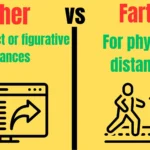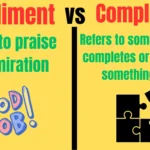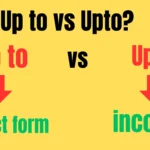When expressing thanks, the phrase “Thanks All” has become increasingly common in both casual and semi-formal contexts. But is it the most appropriate way to show gratitude?
In this post, we’ll delve into the nuances of using “Thanks All,” comparing it with other phrases, and offering guidance on choosing the best expression based on context.
Formality and Informality in Expressions of Gratitude
Formality plays a crucial role in communication, influencing how our messages are received. Understanding the difference between formal and informal expressions helps us choose the right words for each situation.
Definition and Importance of Formality in Communication
Formality refers to the level of professionalism and adherence to social norms in language. Formal expressions of gratitude often include:
- “Thank you for your assistance.”
- “I appreciate your support.”
These phrases are suitable for professional settings where respect and politeness are paramount.
In contrast, informal expressions are more relaxed and personal, such as:
- “Thanks a lot!”
- “Cheers for that!”
They are appropriate for casual conversations with friends or family.
Contextual Use of “Thanks All”
“Thanks All” is often used in informal settings, such as team chats or group emails. It conveys a sense of camaraderie and collective appreciation. For example, after a successful team project, you might say:
- “Thanks all for your hard work!”
However, in formal settings, such as corporate meetings or official correspondence, more traditional expressions like “Thank you all for your contributions” are preferred.
Understanding Different Audiences
Tailoring your gratitude to your audience is essential for effective communication. Different groups require different levels of formality and specificity.
Addressing Professional vs. Casual Groups
When addressing a professional audience, your gratitude should reflect professionalism:
- “Thank you, everyone, for your dedication to this project.”
In casual settings, you might opt for a more relaxed tone:
- “Thanks all for coming out tonight!”
This distinction helps maintain the right tone and ensures your message is well-received.
Regional and Cultural Sensitivities
Gratitude expressions can vary significantly across regions and cultures. For instance:
- In the United States, phrases like “Thanks, everyone” or “Thank you all” are common and widely accepted in both formal and informal contexts.
- In British English, “Cheers, everyone” might be used more frequently in casual settings.
Understanding these nuances can enhance cross-cultural communication and prevent misunderstandings.
Comparing “Thanks All” and “Thank You Everyone”
While “Thanks All” and “Thank You Everyone” may seem similar, they carry different connotations and are suited to different contexts.
Linguistic Differences and Similarities
- “Thanks All” is more informal and direct. It’s suitable for casual settings and less formal communication.
- “Thank You Everyone” is more neutral and versatile, making it appropriate for a wider range of situations, including both formal and informal contexts.
Tone and Effectiveness
The tone of “Thanks All” is often seen as relaxed and friendly, while “Thank You Everyone” strikes a balance between formality and casualness. For example:
- In a team meeting, saying “Thanks all for your feedback” creates a warm, inclusive atmosphere.
- In a more formal thank-you note, “Thank you everyone for your insightful contributions” conveys professionalism and appreciation.
When to Use “Thanks All” Over Other Forms of Appreciation
Choosing the right expression of thanks depends on the context and your relationship with the audience.
Appropriate Scenarios for “Thanks All”
- Informal Team Settings: After a group activity or project.
- Social Gatherings: In casual communications with friends or family.
Examples:
- “Thanks all for making the event a success!”
- “Thanks all for your support during this busy time!”
Potential Pitfalls
Avoid using “Thanks All” in:
- Formal Correspondence: Where a more professional tone is required.
- Important Business Communications: Where clarity and formality are crucial.
Examples of Mistakes:
- Using “Thanks all” in a formal presentation or corporate email may seem overly casual and unprofessional.
Alternatives to “Thanks All” and “Thank You Everyone”
Expanding your vocabulary for expressing gratitude can enhance your communication.
Varied Expressions of Thanks
Consider using these alternatives depending on the context:
- “Thank you all for your hard work.”
- “Much appreciated, everyone!”
- “I’m grateful to everyone for your effort.”
How to Choose the Right Expression
Match your phrase to the setting and audience. For formal settings, opt for more traditional expressions. For informal contexts, a relaxed tone is acceptable.
Enhancing Your Gratitude with Varied Phrases
Expanding your expressions of thanks adds variety and personalization to your communication.
Expanding Your Vocabulary for Thanking
Explore less common phrases to convey appreciation more effectively:
- “I sincerely appreciate all your efforts.”
- “Your help has been invaluable, thank you!”
Practical Examples and Scenarios
- After a community event: “Your support made this event a memorable one; thank you all!”
- In a professional setting: “Thank you for your continued dedication and hard work.”
Using “Thanks, Everybody” and Other Informal Variants
“Thanks, everybody” and similar informal variants can be suitable for casual settings but may not be appropriate in formal communication.
Understanding Informal Variants
- “Thanks, everybody” is relaxed and suitable for informal interactions.
- “Cheers, all” is another informal variant often used in social contexts.
Appropriate Contexts for Informal Expressions
- Social Media Posts: “Thanks, everybody, for your support!”
- Casual Team Messages: “Cheers, everyone, for pitching in!”
Grammatical Considerations for “Thanks All”
Proper grammar is essential for clear and effective communication.
Correct Usage in Written and Spoken English
In both spoken and written forms, “Thanks All” should be used in contexts where informal communication is acceptable. For formal settings, consider:
- “Thank you all” or “Thank you, everyone”
Avoiding Common Mistakes
Avoid the following errors:
- Using “Thanks all” in formal documents or presentations where a more structured approach is needed.
- Misplacing commas or punctuation in written expressions of thanks.
Conclusion
In conclusion, while “Thanks All” is a friendly and informal way to express gratitude, it is crucial to consider the context and audience when choosing your expression of thanks. Understanding the nuances of formality, audience, and cultural variations will help you select the most appropriate phrase for any situation.
By expanding your vocabulary and tailoring your message to fit the setting, you can enhance your communication and express appreciation more effectively.
4o mini

Sophie Mitchell, a seasoned English educator, brings her passion for language and years of teaching expertise to TalkSpeaker. With a knack for simplifying grammar and expanding vocabulary, she empowers learners to master English with confidence.




